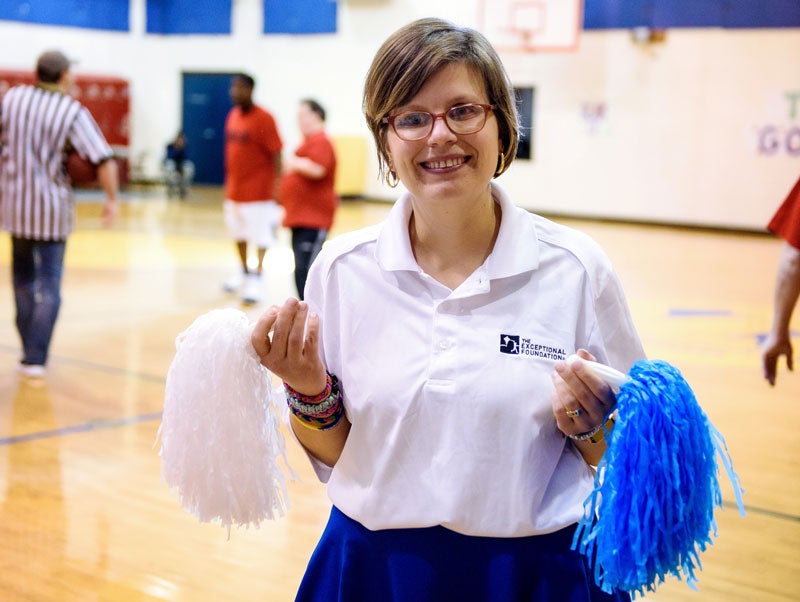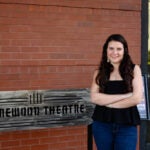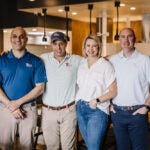On any given day, 197 men and women walk through the front doors of The Exceptional Foundation, excited about another day of playing sports, creating art, or just hanging out with their friends.
Once upon a time, they would not have been here. Once upon a time, they would have been sitting around in an institution—many of them since birth.
But then society evolved, and schools began accepting those with mental challenges into their classrooms. Which was great, but still the special needs students were all grouped together in one classroom.
Then came inclusion. Which was also great—putting those with special needs into the same classrooms as typical-functioning kids. People realized those with special needs are capable of doing so much more than many had previously imagined. But there, sitting next to their classmates at lunch, the kids with special needs heard about what other kids and teenagers their ages were doing. They might not have said much, but they heard it, and according to Tricia Kirk, the president and CEO of The Exceptional Foundation, they wanted in on that life, too.
“Just because they were not going to necessarily be a doctor, lawyer or Indian Chief, they DO want to play the Wii game. They DO want to do sports. They DO want a driver’s license. They DO want girlfriends and boyfriends,” she says. “They dream of everything that everybody else dreams of, and they didn’t have it.”
It was like showing them a window on a fabulous world without giving them a way to achieve it. The key, it turns out, was simply giving them a common space with their peers.
In many public school systems, children age out of high school once they turn 21. After that, they—or their parents—are on their own to find ways to build a fulfilling life. (It also fills the need of parents who need to continue working and can’t stay home with their special-needs adult children.)
That’s pretty much how The Exceptional Foundation got started. A couple of children with special needs who had watched their brothers and sisters play sports for years and come home with trophies, asked their parents when it was going to be their turn. So, those parents started a basketball group at Homewood Parks and Rec. It gave everyone who had aged out of high school a chance to be on a team, but also just to be able to be around others who had the same abilities.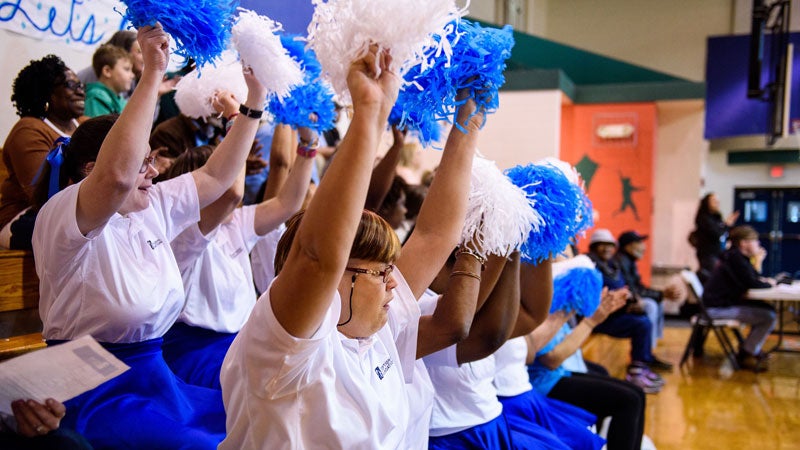
Pretty soon people in surrounding communities heard about it and started coming out, and it grew. In 1993 they officially became The Exceptional Foundation, and in 1999, they built their own building, thanks to the city of Homewood for donating the land.
At first, there were around 20 participants a day. Today, The Exceptional Foundation serves around 700 people in the greater Birmingham area, although not everyone is there at the same time. The Exceptional Foundation offers daily programs Monday through Thursdays (art, music, karaoke, games, cooking, sports, movies, etc.), field trips and special outings on the weekends, sports leagues on Saturday mornings, and now, they offer programs for children after school and during the summer.
It’s a game changer for people like Stephanie Romeo (pictured at the top of this article), who is 35 and has been coming here since she was around 20. She still remembers what it was like growing up. “At my school it was hard to make friends there because some people were mean to me,” she says. “But not here,” she adds with a smile. “We’re like a family here with everybody.”
Stephanie, who is from Homewood, especially enjoys bowling and tennis. In fact she has travelled with the Foundation’s bowling team as far as Reno, Nevada, and won the Sportsmanship Award at the Special Pops Tennis tournament in Atlanta in 2012. “I started crying,” she says, remembering the moment. “Because I was happy,” she is quick to clarify. She keeps the trophy in her den, in the house she shares with her mother.
Stephanie mentions she has a boyfriend. “I talk to him at night on his private line upstairs,” she says with a grin. She has a best friend, too, and her face lights up when she talks about her. “Her name is Tamara. We always do things on the weekend together. And I sit with her at lunch.”
It’s exactly what President and CEO Tricia Kirk loves to hear. “I think it’s every parent’s dream for their child to have friends.” She tells the story of a woman who had to leave early the other day because she got sick. She’d only been attending for a year, and she started crying because she didn’t want to leave. When her mom came to pick her up, “the mother started crying, and she said, ‘I’m crying for two reasons: I’m crying number one because I never thought she was going to have friends, and number two: that she’s so happy she doesn’t want to leave,’” Tricia recounts.
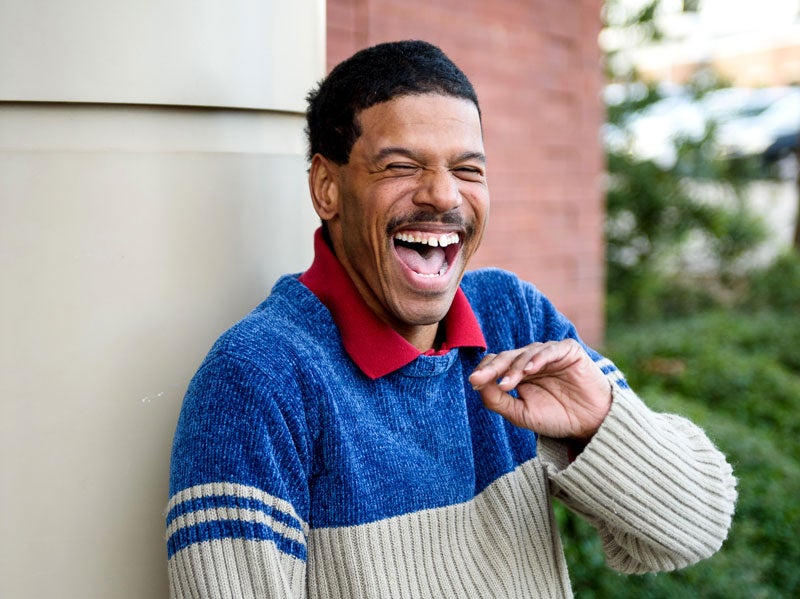
Sam Sullivan
Sam Sullivan, another participant who is from Homewood, comes four days a week. “Every day when I get up I say ‘Thank you for making this day possible for me today.’” Sam might be the most thankful person you will ever meet. And he’s incredibly outgoing. “He is a social butterfly,” says Robbie Lee, athletic director for the foundation. “Sam has never met a stranger.” It’s a kind of happiness that is contagious to everyone around him.
This kind of happiness that comes from having one’s social needs being met, Robbie and Tricia believe, is sure to have lasting health benefits. They see it, especially in participants who don’t transition here right after ageing out of high school.
“The depression,” says Tricia. “To watch the guys come here that have been sitting on the sofa for five years and the medicines they take, and I begin to see, as they are having more activities, the medicines start coming off. The depression starts going away because they have a full life.”
Robbie says every week they get a call from some parent who’s only just heard about them. “I had a father contact me from Oak Mountain, and he said, ‘My son has special needs and he’s been the manager for the basketball team. They’re great to him, but basketball is his LIFE, and we’re concerned that once he’s done with school, that that’s it, there’s no more basketball!’ and I said, ‘No-no-no-no!’”
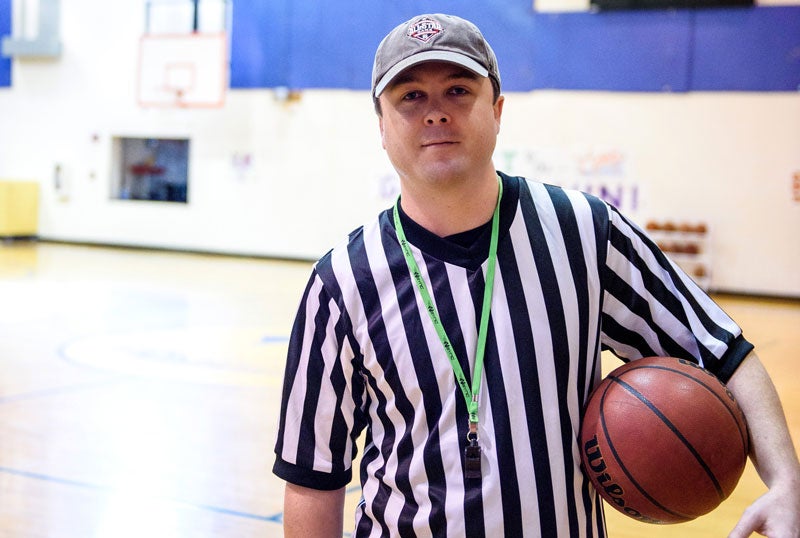
Robbie Lee
There’s definitely more basketball. For as long as he wants to keep playing. You can find that kid, 17-year-old Kasey Dunaway at The Exceptional Foundation on Saturday mornings, playing in the adult league NOW, because he’s THAT good.
You can spot his dad in the crowd wearing a shirt that says “Basketball Dad.” “Kasey’s goal in life is to be on a team that plays different teams every week and gets to travel to play them. And so, yes, he is living his dream right now,” Kasey’s mom, Brenae, says.
The Oak Mountain High School basketball team calls Kasey their number one fan. His parents say he’s only missed two games this season, and on this particular Saturday, several members of the Oak Mountain High School basketball team have come HERE to watch HIM play.
“It’s just wonderful,” Brenae says, as tears roll down her face. “Just being out here on Saturdays, watching him. All of these teams play. It’s the most enjoyable Saturday you can ever spend. It is wonderful as a parent to be able to see your child participate in the skills of life, no matter what their ability is.”
And just like any parents, Kasey’s dad retells how the previous week, with just eight seconds left in the game, behind by three, Kasey hit a three-pointer to tie things up. And Brenae whips out her cell phone to show the video.
And it’s an amazing thing. Because everyone, everywhere, just wants a chance to participate. And that’s what The Exceptional Foundation does every day. It gives people a chance.
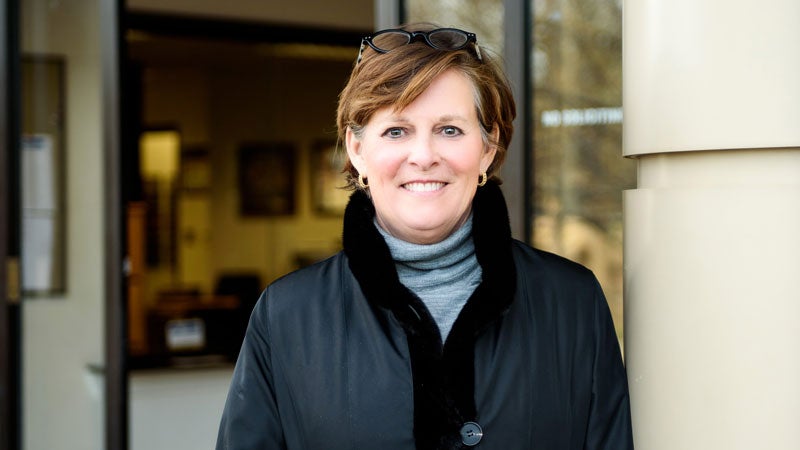
Tricia Kirk
By the Numbers
0
The number of other organizations, nationwide, that were dedicated to meeting the social needs of developmentally challenged adults, before The Exceptional Foundation began
5 to 82
Ages of participants in programs offered by The Exceptional Foundation
7
The number of other communities who have contacted The Exceptional Foundation and are either working to, or have already copied what The Exceptional Foundation offers
10
Average number of field trips participants go on each month
200
Average number of participants attending each day
300
The monthly fee for attending four days a week, from 8 a.m. to 6 p.m. (That’s less than $2 an hour.)
⅓ to ¼
The fraction of the operating budget that participation fees cover
700
Number of people participating in The Exceptional Foundation programs in the greater Birmingham area
2,000,000
The Exceptional Foundation’s approximate annual budget.
3
Annual fundraisers
0
Number of people who are turned away because they can’t pay.

